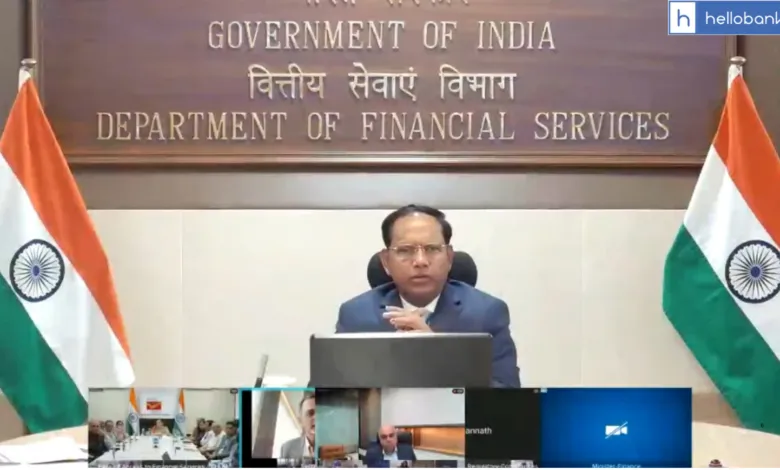Government asks Public Sector Banks to Speed Up Recovery Process of Bad Loans

The Department of Financial Services (DFS) has asked public sector banks (PSBs) to speed up their work when it comes to filing insolvency cases under the Corporate Insolvency Resolution Process (CIRP). This move aims to help banks recover bad loans faster and improve the handling of stressed assets under the Insolvency and Bankruptcy Code (IBC).
- Also Read: DFS Secretary M Nagaraju conducts surprise visits to Government Banks
- Also Read: DFS Secretary Reviewed Functioning of NABARD, Read Meeting Highlights
- Also Read: DFS Secretary Reviewed Progress of Regional Rural Banks, Read Meeting Highlights
Why the government wants faster action
In a recent high-level review meeting, DFS Secretary M. Nagaraju told banks that they need to file cases more quickly with the National Company Law Tribunal (NCLT). He also stressed that banks should avoid unnecessary delays and make sure they are using other recovery methods alongside the IBC process.
The meeting was attended by senior officials from the DFS, the Ministry of Corporate Affairs, the Insolvency and Bankruptcy Board of India (IBBI), and top executives from public sector banks. The main goal of the discussion was to improve how efficiently insolvency cases are handled and to remove the obstacles that slow down the recovery of bad loans.
Key instructions given to banks
Banks were told to pay close attention to their top 20 non-performing accounts and carefully track cases where resolution plans have been pending with the Committee of Creditors (CoC) for more than three months.
The DFS also highlighted the need to quickly lift any stay orders that may be blocking the progress of insolvency cases. This is important because stay orders can hold up the entire resolution process, making it harder for banks to recover money.
Stronger legal push needed
According to a statement from the finance ministry, the review meeting also included a detailed check on cases that are still waiting to be admitted at the NCLT. Banks were encouraged to take a more proactive approach when it comes to filing CIRP applications and to follow up on them regularly.
Additionally, legal teams at banks were instructed to firmly challenge any efforts to delay the cases through unnecessary legal tactics. This is meant to ensure that the resolution process moves forward without being blocked by baseless claims.
- Also Read: DFS Secretary M Nagaraju conducts surprise visits to Government Banks
- Also Read: DFS Secretary Reviewed Functioning of NABARD, Read Meeting Highlights
- Also Read: DFS Secretary Reviewed Progress of Regional Rural Banks, Read Meet
Why this matters for the banking sector
Faster insolvency resolution is crucial for improving the health of the banking sector. When banks can recover their money from bad loans quickly, they have more funds available to lend to businesses and individuals, which helps boost the economy.
By cutting down on delays and improving the efficiency of the insolvency process, the government hopes to strengthen the overall financial system and make sure that public money is used more effectively.
- Also Read: DFS Secretary M Nagaraju conducts surprise visits to Government Banks
- Also Read: DFS Secretary Reviewed Functioning of NABARD, Read Meeting Highlights
- Also Read: DFS Secretary Reviewed Progress of Regional Rural Banks, Read Meet
